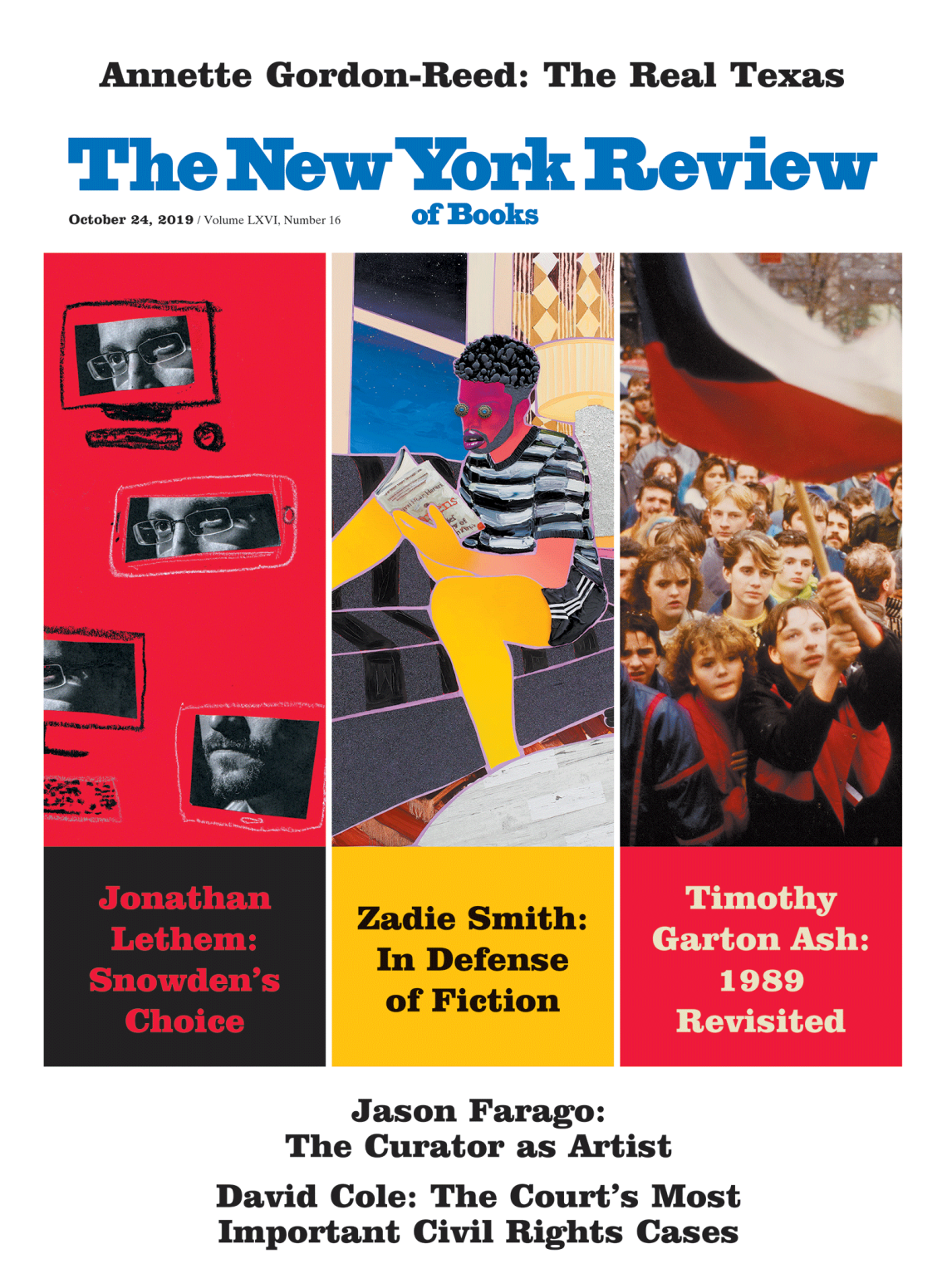In response to:
A Universe of One’s Own from the July 18, 2019 issue
To the Editors:
In her review of Lisa Yaszek’s The Future Is Female! [NYR, July 18], Nicole Rudick claims that I missed “the forest for the trees” in my book Partners in Wonder: Women and the Birth of Science Fiction, 1926–1965. She is referring to my criticism of second-wave feminist SF scholars of the Seventies for their ignorance of female science fiction writers in the early SF magazines. Rudick excuses this ignorance by saying, “But how readily available were copies of SF magazines from the Forties and Fifties to women in the Seventies?”
The answer is that they were just as available to women in the Seventies as they were to men such as myself. Not only were archives available to scholars in libraries, but, in those halcyon days, the land was dotted with used bookstores. Each of those bookstores offered a treasure trove of early SF magazines, to be had for dimes and quarters. Almost every such magazine offered at least one story by a female writer. The problem was not lack of availability of the magazines. The problem was that those scholars opined about a field of knowledge that they seemingly chose not to explore.
Their choice seems to be very similar to that of noted female SF writer Kate Wilhelm. In her 2005 memoir, Storyteller: Writing Lessons and More from 27 Years of the Clarion Writers’ Workshop, Wilhelm tells us (p. 168) that she began writing SF and selling it to the SF magazines without ever having read an SF magazine, even a current one. As she further notes (p. 153), when she attended her first Clarion Writers’ Workshop, her ignorance of earlier SF was painfully obvious, and “James Blish advised me to stop writing for a time and go back to read more early science fiction, which I had missed if it was not in library anthologies. I never did.”
The second-wave feminist scholars of SF in the Seventies also had that same choice of going back and reading more early science fiction before expressing their opinions of it. They never did.
Eric Leif Davin
Pittsburgh, Pennsylvania
This Issue
October 24, 2019
In Defense of Fiction
Snowden in the Labyrinth
The Real Texas


